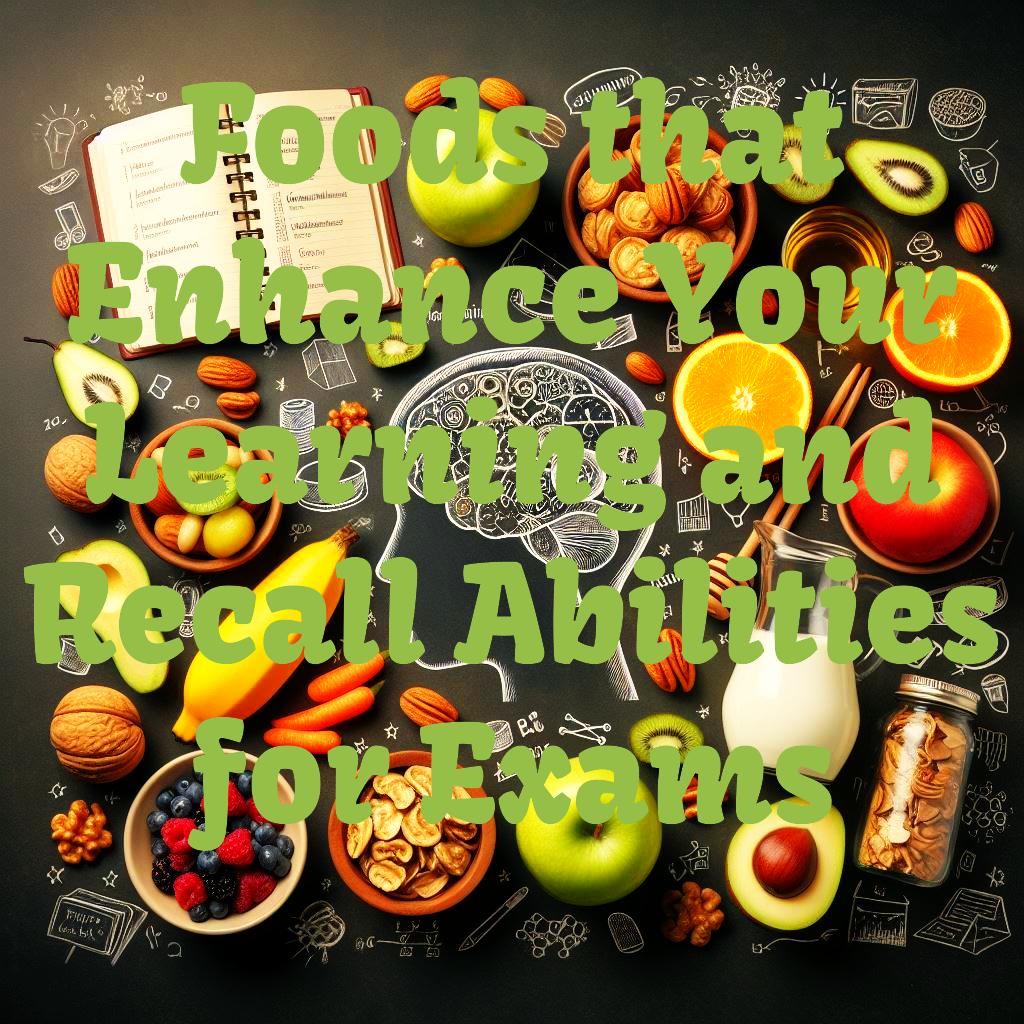If you are a student who wants to excel in your exams and improve your academic performance, you might be wondering what you can do to boost your brain power. Well, one of the simplest and most effective ways is to eat the right foods. Nutrition is crucial for your brain health and cognitive function, and some foods can help you learn and remember better than others. In this article, we will show you some of the best foods that can enhance your learning and recall abilities for exams, and how to include them in your diet.
Berries
Berries are not only tasty, but also good for your brain. Berries, such as blueberries, strawberries, and blackberries, contain flavonoids, which are natural compounds that have antioxidant and anti-inflammatory effects. Flavonoids, especially anthocyanins, can improve blood flow to the brain, protect against oxidative stress and inflammation, and enhance memory and learning.

There is plenty of evidence that berry intake can improve mental performance on various tests. For example, a study of healthy older adults found that consuming blueberry juice daily for 12 weeks improved memory and learning. Another study of young adults found that eating strawberries before a cognitive test improved accuracy and reaction time.
If you have an important exam coming up, and you want to prepare well for it. You can start your day with a berry smoothie, which will give you a burst of energy and antioxidants. You can also snack on some fresh or frozen berries throughout the day, which will keep you hydrated and satisfied. You can also add some berries to your salad or yogurt, which will add some sweetness and flavor.
Citrus fruits
Citrus fruits, such as oranges and grapefruit, are another great source of flavonoids for your brain. Citrus fruits contain flavonoids, such as hesperidin, naringin, quercetin, and rutin, that can promote learning and memory, and protect nerve cells from injury. These flavonoids can also modulate the activity of neurotransmitters, such as acetylcholine, dopamine, and serotonin, which are involved in cognitive processes.

Human studies have also shown the positive effects of citrus fruits on brain function. For instance, a study of healthy older adults found that drinking orange juice daily for eight weeks increased blood flow to the brain and improved performance on a symbol-matching test. Another study of healthy young adults found that drinking grapefruit juice before a cognitive test enhanced mood and alertness.
If you have a long day of classes and assignments ahead of you, and you need to stay focused and alert. You can drink a glass of orange or grapefruit juice in the morning, which will provide you with vitamin C and flavonoids. You can also eat a whole citrus fruit as a snack, which will give you some fiber and hydration. You can also zest some citrus peels and use them to flavor your dishes, such as chicken, fish, or rice, which will add some freshness and aroma.
Fatty fish
Fatty fish, such as salmon, tuna, and sardines, are rich in omega-3 fatty acids, which are essential for brain health. Omega-3 fatty acids, such as eicosapentaenoic acid (EPA) and docosahexaenoic acid (DHA), help build and repair brain cells, and improve communication between them. Omega-3 fatty acids can also reduce inflammation, lower blood pressure, and improve blood flow to the brain.

Many human studies have shown that omega-3 supplementation can improve academic performance, especially in subjects like math and reading. For example, a study of children with attention deficit hyperactivity disorder (ADHD) found that omega-3 supplementation for 16 weeks improved their reading and spelling skills. Another study of healthy college students found that omega-3 supplementation for six months improved their working memory and reaction time.
If you have a difficult math or reading exam coming up, and you want to ace it. You can eat some fatty fish at least twice a week, which will provide you with omega-3 fatty acids and protein. You can also choose grilled, baked, or canned options, and avoid fried or processed ones. You can also take some omega-3 supplements, which will give you a consistent dose of these beneficial fats.
Dark chocolate
Dark chocolate is not only a delightful treat, but also a brain enhancer. Dark chocolate contains caffeine and flavonoids, such as epicatechin, that can improve your focus, alertness, and mood. Caffeine can activate the central nervous system and boost cognitive performance. Flavonoids can raise the production of nitric oxide, which can widen blood vessels and increase blood flow to the brain.

There is ample evidence that dark chocolate can improve brain function on various tests. For example, a study of healthy older adults found that eating dark chocolate daily for eight weeks improved brain activity and cognitive function. Another study of healthy young adults found that consuming dark chocolate before a cognitive test improved accuracy and response time.
If you have a stressful presentation or a challenging quiz coming up, and you need to perform well. You can have a small piece of dark chocolate as a reward, or combine it with nuts and dried fruits. You can also opt for dark chocolate with at least 70% cocoa content, and limit your consumption to avoid excess calories and sugar.




qqquol